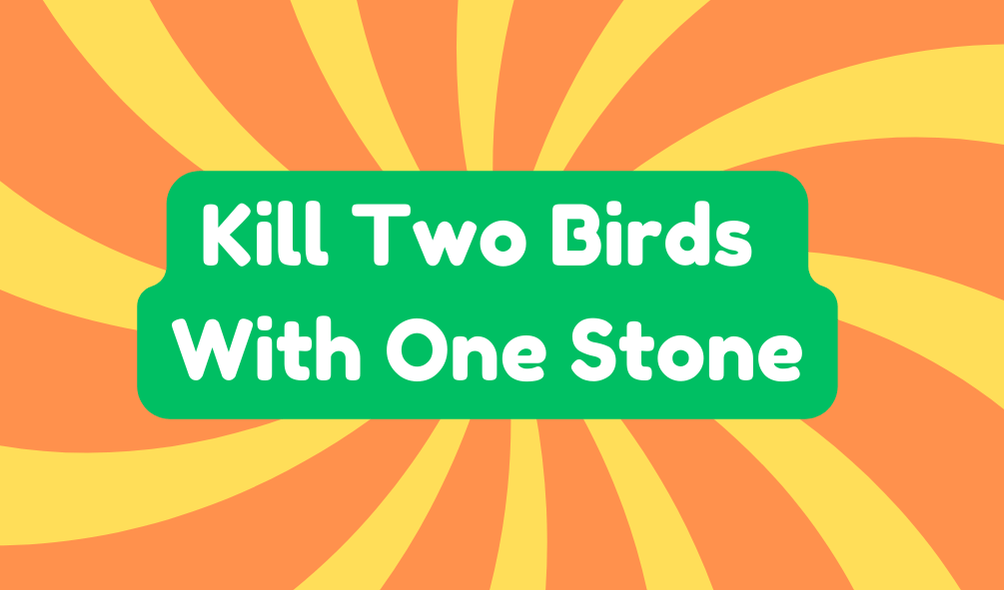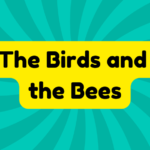The phrase "kill two birds with one stone" refers to achieving two goals with a single action. This idiom, with roots dating back to 1656, emphasizes efficiency and multitasking. Many use it to describe moments like grocery shopping while picking up a gift, or exercising during a commute. While the intent is practical, it raises skepticism about whether focusing on dual objectives truly maximizes productivity. There's more to explore regarding its relevance in modern life.
Synonyms
In the domain of language, finding the right words to convey meaning can often feel like a puzzle. The idiom "kill two birds with one stone" has various synonyms and alternative phrases that enrich its essence. A critical examination reveals the utility and limitations of these expressions in effective communication.
- Achieve two goals simultaneously
- Solve two problems with one action
- Accomplish dual objectives
- Realize two aims in one effort
- Fulfill multiple tasks in a single endeavor
These idiomatic expressions can enhance clarity, but the choice of words must remain deliberate to guarantee the intended message resonates effectively.
Example of Sentences
Example sentences serve as practical illustrations of the idiom "kill two birds with one stone," demonstrating its application in everyday situations. These examples highlight how individuals creatively combine tasks or objectives, embodying the efficiency the phrase suggests. Consider the following:
- "While commuting, she submitted her report via email, killing two birds with one stone."
- "He jogged in the park and met friends, effectively killing two birds with one stone."
- "Attending the conference also allowed her to network, thereby killing two birds with one stone."
- "Grocery shopping included picking up a gift, killing two birds with one stone."
- "He practiced his presentation while waiting for his ride, killing two birds with one stone."
Origin
The idiom "kill two birds with one stone" boasts a rich and intriguing origin story. Its earliest printed record dates back to 1656, yet its roots resonate in various cultures. Engaging in idiomatic analysis reveals theories of Greek mythology and earlier expressions by John Heywood.
| Origin Theory | Year | Description |
|---|---|---|
| Daedalus and Icarus | Ancient | Feathers obtained by killing birds. |
| John Heywood's Expression | 1546 | "Stop two gaps with one bush." |
| Thomas Hobbes | 1656 | Exact phrase found in his work. |
This complex background invites skepticism about its violent imagery versus actionable innovation.
Collocations
Collocations related to the idiom "kill two birds with one stone" illustrate how language often intertwines with pragmatic thinking. Such phrases enhance communication, exemplifying efficiency in expression. Understanding collocations examples can offer innovative insights into everyday language.
- Achieve two objectives
- Maximize productivity
- Solve multiple issues
- Streamline tasks effectively
- Optimize efforts
These collocations usage examples reflect a synergy of thought and action. However, it is essential to remain critical of their overuse. Relying heavily on idiomatic expressions can dilute clarity, potentially leading to misunderstandings. Indeed, balance is essential in utilizing language effectively and innovatively.
How to Use in Everyday Language
Using the idiom "kill two birds with one stone" can add a layer of efficiency to everyday conversations, emphasizing the notion of multitasking. This phrase illustrates effective time management strategies by suggesting that one action can address multiple objectives. Below is a table displaying common scenarios where this idiom might apply.
| Scenario | Explanation |
|---|---|
| Grocery shopping and errands | Accomplish both tasks in one trip. |
| Networking during an interview | Meet colleagues while job hunting. |
| Exercise during commute | Save time and improve health simultaneously. |
| Meal prepping while cleaning | Use time efficiently by multitasking. |
| Reading while commuting | Gain knowledge while traveling. |
Why Is It Still Relevant Today?
Why does the idiom "kill two birds with one stone" continue to resonate in modern society? In an age emphasizing modern efficiency, this phrase embodies the pursuit of dual benefits in personal and professional contexts. It encourages individuals to seek solutions that maximize productivity while minimizing effort. However, over-reliance on this concept may lead to a superficial approach, where depth and quality are sacrificed for expediency. While the desire for dual outcomes is understandable, critical thinking remains essential. In striking a balance between innovation and thoroughness, one must remember that achieving two objectives simultaneously is not always feasible or advisable.







